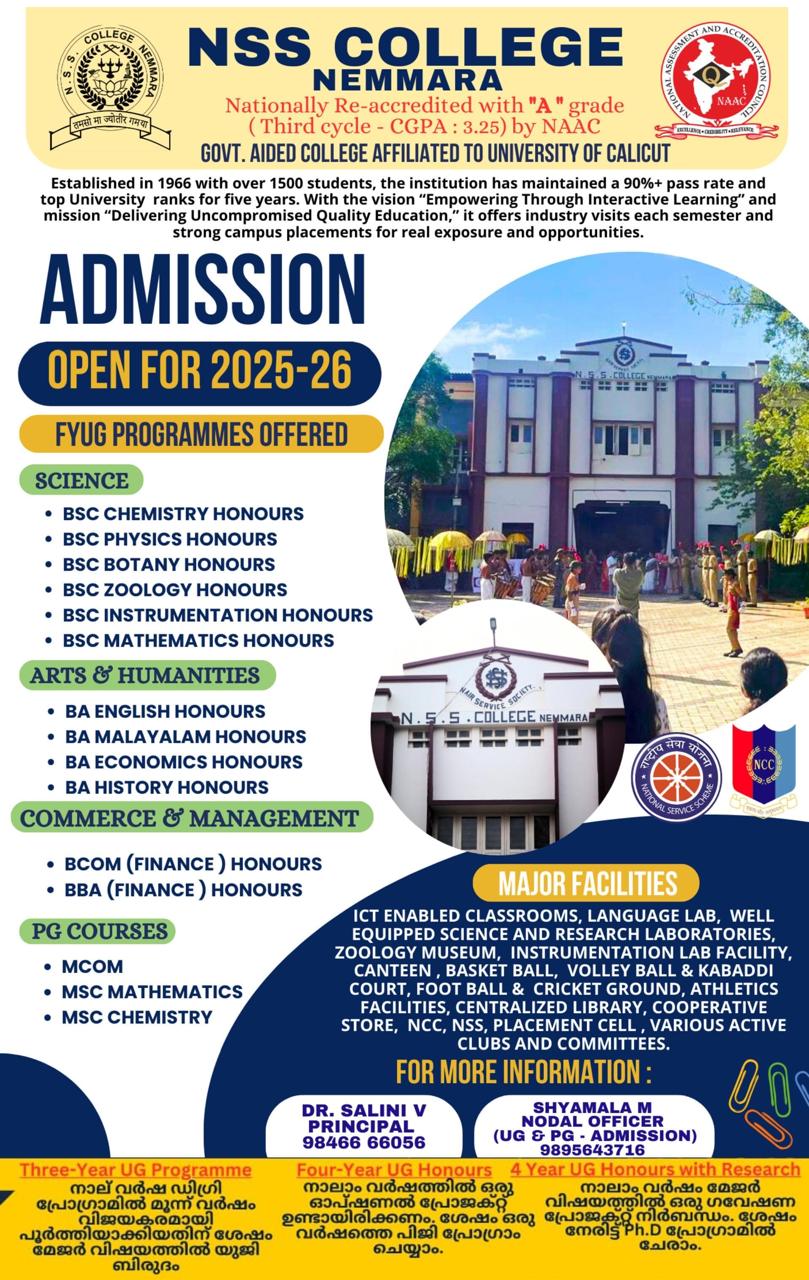1. Principal is the ultimate disciplinary authority in the college. In the interest of the general discipline of the institution, the Principal is entitled to refuse admission to any applicant, to suspend, to dismiss or to take any other punitive action against the misconduct of the students.
2. The management has a right to stall organisational activities of student organisations directly or through their member students in the campus (Amendment to University Rule No. 7).
3. Misconduct includes,
a. Staying away from classes without sufficient reasons.
b. Disrespectful behaviour towards the staff and elders.
c. Provoking students to stay away from classes and to participate in strikes.
d. Loitering in verandahs and creating disturbance to the classes in progress.
e. Organising meeting in the college and collecting money without the permission of the principal.
f. Taking outsiders into the college campus.
g. Distributing leaflets, notice or printed materials and displaying banners and posters inside the campus without prior permission.
h. Unauthorised writing on college walls, blackboard, furniture or on any other place in college. Vandalism and destruction of college property will be severely dealt with and material losses will be fully recovered with fine.
4. Irregular attendance, insubordination to staff members, obscenity in word or deed and any other misconduct are sufficient reasons for suspension or expulsion of a student from the college.
5. Students should wear the prescribed uniform on all working days except Wednesdays and Saturdays.
6. Smoking, use of alcohol, chewing pans, drugs etcetera are strictly prohibited in the college campus.
7. Students are warned against participating in any agitation directed against constitute authority or in any movement or action that is likely to excite disloyalty to the constitution and create communal ill feelings and hatred.
8. All students are directed to carry their identity card with them and produce when demanded by the authorities.
9. Every student shall handle college property with maximum care and shall try to preserve the cleanliness and tidiness of the furniture, building and the premise.
10. Use of Mobile phone by the students is strictly prohibited in the campus.
11. Students should be earnest in their studies. They should be punctual in attending classes, and participating in academic and extracurricular activities arranged for them. Hence they are advised to take active interest in activities like NCC, NSS, Compulsory Social Service and Physical Education programmes of the college. The primary aim of education is all around development of human personality. Education nourishes good nature and correct bad ones. Every student shall cultivate good habits, self-discipline and perseverance. College life offers the best opportunity to put these basis qualities in to practice.
12. A discipline committee has been formulated in the college to ensure smooth functioning of the college.
PROHIBITION OF RAGGING
Ragging is prohibited inside and outside the institution as per the Kerala Ragging Prohibition Act 1998. According to Section 2(B) of the act, by ragging it is meant any physical or mental torture or any disorderly conduct towards any student of an educational institution, causing apprehension, dread, humiliation or agitation in him/her. It can be any harassment like insulting, teasing, bullying or manhandling. It can also be forcing upon him/her to do something which he/she voluntarily won’t dare to do normally.
PUNISHMENT FOR RAGGING
Any student involved in ragging/persuades others for ragging or advocates ragging /either inside or outside an educational institution shall be subject to a punishment of not more than 2 years imprisonment in addition to a penalty of Rs.10,000/-. A student who is punished for ragging is liable to be dismissed from the institution and is barred from being admitted to any other institution for a period of 3 years from the date of receipt of his/her dismissal order.
If a student/parent/guardian or any teacher of the institution forwards a written complaint to the Principal, he has to make an urgent enquiry into the matter within 7 days of the receipt of such a complaint. If the allegation is proved to be correct, the accused must be suspended with immediate effect and the matter must be referred to the police for further proceedings. If a written complaint is received by the Principal, he has to make a detailed enquiry and if it is found baseless, the complainant must be informed of it in writing.

